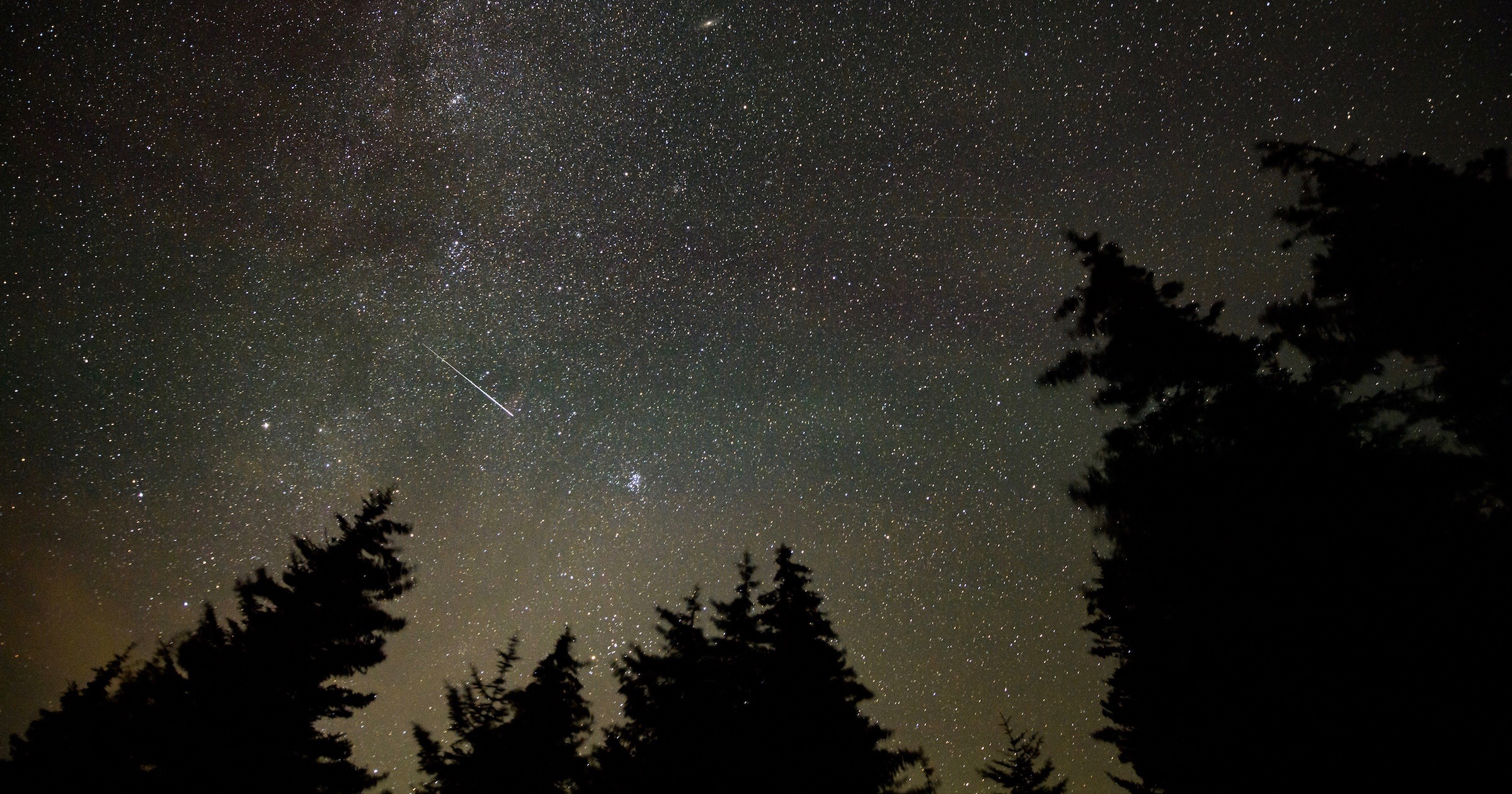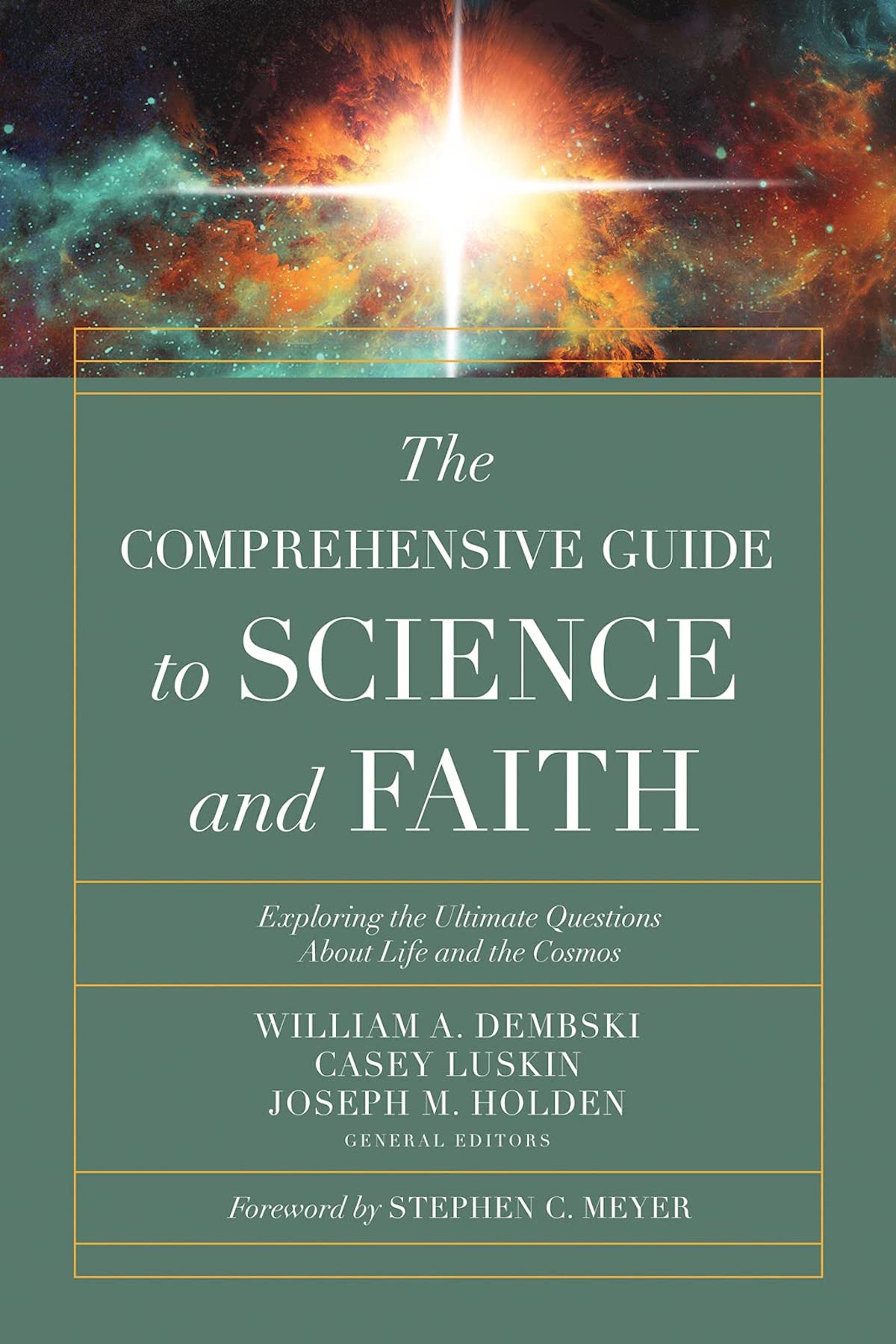 Faith & Science
Faith & Science
 Intelligent Design
Intelligent Design
New Book, The Comprehensive Guide to Science and Faith, Answers Key Questions on Intelligent Design

Science and faith are often presented as mutually exclusive, but a new volume released today, The Comprehensive Guide to Science and Faith: Exploring the Ultimate Questions About Life and the Cosmos, challenges this stereotype. Published by Harvest House, and co-edited by Casey Luskin, William Dembski, and Joseph Holden, the book features more than 40 entries authored by over 30 experts addressing key topics in the science-faith debate, including:
- Does scientific evidence provide evidence that life and the universe were designed?
- Has the history of science shown that religion has encouraged scientific discovery, or has it been a hindrance?
- Can material causes explain the origin and evolution of life?
- Are humans special and unique, and do they share common ancestors with animal species?
- Is Earth a privileged planet with unique properties?
Broad and Deep, Yet Tight
The book contains a mix of chapters, some of which are more focused on science and faith-related topics, while others address scientific questions related to the evidence regarding intelligent design.

Many superb ID-related books have been written, but this volume contributes something new: Each chapter is written by an expert who gives a comprehensive yet concise and readable briefing on key questions related to science, faith, and design. Contributions come from many leading ID theorists and thinkers — including William Dembski, Stephen Meyer, Michael Behe, Casey Luskin, Douglas Axe, Jonathan Wells, Walter Bradley, Brian Miller, Paul Nelson, Günter Bechly, Guillermo Gonzalez, John West, Robert Marks, Michael Keas, Jay Richards, Richard Weikart, Bruce Gordon, Michael Egnor, Cornelius Hunter, John Bloom, and others. Few books go this broad yet deep on ID and in such a “tight” manner.
Science and Faith — Parallel or Orthogonal?
Distinguished Rice University chemist James Tour says:
This is a heroic encyclopedic work by some of the world’s top thinkers on the topics of science, faith, and the cosmos, and the God who created them all. If anyone thinks that the study of science and faith should be disparate disciplines, here are more than 656 reasons why they’re wrong. What is clear from this massive volume is that the alignment of science and faith is far closer to parallel than orthogonal, and it spans as far as from east to west across the tangents of science, life, and eternity.
Key Contributions
Here are some key contributors and their chapter titles:
Stephen C. Meyer:
- Foreword
- What Is the Evidence for Intelligent Design and What Are Its Theological Implications?
William A. Dembski:
- What Are Science and Faith — And Are They Compatible?
- Why Does Intelligent Design Matter?
- How Can We Make Sense of Natural Evil?
Michael Keas:
- Is Christianity at War with Science?
John Bloom:
- Did Christianity Help Give Rise to Science?
Fazale Rana:
- What Is the Biblical and Scientific Case for a Historical Adam and Eve?
Richard Weikart:
- How Has Evil Been Done in the Name of Science?
Jay Richards:
- How Can We Use Science in Apologetics?
- Is Theistic Evolution a Viable Option for Christians?
Douglas Axe:
- Is Our Intuition of Design in Nature Correct?
- Can New Proteins Evolve?
Michael Egnor:
- Have Science and Philosophy Refuted Free Will?
- Can Materialism Explain Human Consciousness?
Brian Miller:
- Does the Big Bang Support Cosmic Design?
Walter Bradley and Casey Luskin:
- Did Life First Arise by Purely Natural Means (Abiogenesis)?
Hugh Ross:
- How Does Fine-Tuning Make the Case for Nature’s Designer?
Guillermo Gonzalez:
- Do We Live on a Privileged Planet?
- How Do Solar Eclipses Point to Intelligent Design?
- Can Panspermia Explain the Origin of Life?
Bruce Gordon:
- How Does the Intelligibility of Nature Point to Design?
- Does the Multiverse Refute Cosmic Design?
Jonathan Wells:
- What Are the Top Scientific Problems with Evolution?
- Is Darwinism a Theory in Crisis?
Michael Behe:
- How Does Irreducible Complexity Challenge Darwinism?
Paul Nelson:
- Can Universal Common Descent Be Tested?
Günter Bechly:
- Does the Fossil Record Demonstrate Darwinian Evolution?
Denyse O’Leary:
- Is Evolutionary Psychology a Legitimate Way to Understand Our Humanity?
Cornelius Hunter:
- Does Darwinism Make Theological Assumptions?
John G. West:
- How Has Darwinism Negatively Impacted Society?
- Do Scientists Have the Intellectual Freedom to Challenge Darwinism?
Robert J. Marks II:
- Will Intelligent Machines Rise Up and Overtake Humanity?
Wesley J. Smith:
- What About Human Exceptionalism and Genetic Engineering?
Henry “Fritz” Schaefer III:
- How Have Christians Helped to Advance Science?
Casey Luskin:
- What is Intelligent Design and How Should We Defend It?
- What Is the Positive Case for Design?
- Does the Evidence Support Universal Common Ancestry?
- Do Fossils Demonstrate Human Evolution?
We will feature excerpts from the book in coming weeks and months, including podcasts interviewing authors of the volume. You will enjoy The Comprehensive Guide to Science and Faith!
